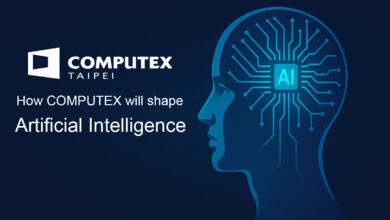On the morning of Monday, July 7, 2025, the Egyptian capital, Cairo, was rocked by a critical and alarming event a massive fire broke out inside Ramses Central, one of the oldest and most vital telecommunications hubs in the country. Located in the heart of the city near Ramses Square, this building is far more than just a technical facility. It serves as a major digital nexus connecting crucial sectors, including landline phone networks, internet services, and an extensive web of fiber-optic cables that support government entities, financial institutions, and densely populated residential and commercial areas. This was no ordinary fire it was a national emergency that disrupted the daily lives of millions and temporarily threatened the stability of Egypt’s digital services.
As the flames spread rapidly through the internal floors, emergency response teams rushed to the scene and managed to contain the blaze after several hours of intense effort. Despite the swift intervention, the incident resulted in minor human casualties, a regrettable but fortunately limited outcome. However, the technical damage was extensive. Hundreds of cables and servers were damaged or destroyed, along with essential power units and transmission components, leading to a widespread outage of fixed internet services—particularly in Cairo and Giza. Millions of users suddenly found themselves cut off from the digital world at a time when connectivity is as critical as access to electricity or clean water.
The fire’s impact wasn’t limited to fixed-line infrastructure. Its effects rippled across mobile networks that depend on Ramses Central to power their towers and relay stations across various districts. Users experienced call disruptions and slow or entirely disabled mobile data services, especially as the burden shifted to alternative networks in an attempt to reroute operations. Telecom providers were caught off guard, with most lacking fully functional emergency backup systems capable of offsetting such a sudden and massive loss in operational capacity. The event exposed a significant vulnerability in Egypt’s emergency telecom response protocols.
Even more concerning was the disruption to Egypt’s digital financial sector. Several popular banking apps went offline, leaving users unable to perform transactions or access their accounts. Electronic payment systems and point-of-sale (POS) terminals in retail stores and essential facilities were also affected, along with numerous ATM machines. This technical paralysis caused widespread confusion in commercial areas and resulted in long queues at the few ATMs that remained functional in unaffected zones such as Downtown Cairo and Heliopolis.
The Egyptian government, through the Ministry of Communications and Information Technology, moved quickly to reassure the public that no data had been lost or compromised. Telecom Egypt, the operator responsible for the central hub, announced the activation of contingency plans to reroute traffic through other exchanges and promised compensation in the form of free data packages or billing discounts. Meanwhile, the Central Bank of Egypt confirmed that all financial data remained intact, emphasizing that banks follow regular backup and redundancy protocols to ensure the continuity of services.
Nevertheless, the incident revealed deeper structural weaknesses in the country’s digital backbone. The overreliance on centralized infrastructure like Ramses Central—without proper geographical distribution or robust failover strategies—greatly magnified the crisis and paralyzed vast portions of the communication and service ecosystem. It became evident that Egypt’s digital growth outpaces the parallel development of its technical infrastructure, security frameworks, and operational safeguards.
Worryingly, this vulnerability has surfaced during a time when Egypt is pushing aggressively toward full digital transformation—across government functions, banking, education, and healthcare. Events like this serve as a litmus test for the resilience of national infrastructure and highlight the need for a strategic shift toward decentralization, cloud computing, and secured disaster recovery data centers that can instantly support operations in times of crisis.
The continued dependence on aging central exchanges—tasked with powering vast swathes of the country—runs counter to the global trend of adopting distributed data centers, intelligent networks, and smart protocols capable of rerouting traffic automatically during outages. Such models not only ensure business continuity but also shield the national economy from the fallout of technical disasters.
The incident also sheds light on the low levels of digital preparedness among the public. Many individuals remain unfamiliar with alternative connectivity solutions or backup tools to maintain access to essential services in emergencies. This highlights the urgent need for awareness campaigns led by media outlets, educational institutions, and government agencies to foster a deeper understanding of cybersecurity and digital resilience in modern society.
It is also worth noting that, while the event didn’t result in a large number of fatalities, even minor human losses underscore the critical importance of digital safety. Maintaining operational continuity in digital services is no longer a luxury or secondary concern—it has become a central pillar of national security and societal stability.
In conclusion, the Ramses Central fire was more than an unfortunate accident; it was a sobering reflection of the fragility within Egypt’s digital ecosystem. It serves as a harsh reminder that the country must reassess and restructure its telecom and IT infrastructure if it hopes to build a truly resilient digital future. The silver lining lies in the timing: there is still an opportunity to fix what’s broken, to move from reactive measures to proactive planning, and to replace outdated systems with a smart, flexible, and robust digital foundation that can withstand any disruption.




